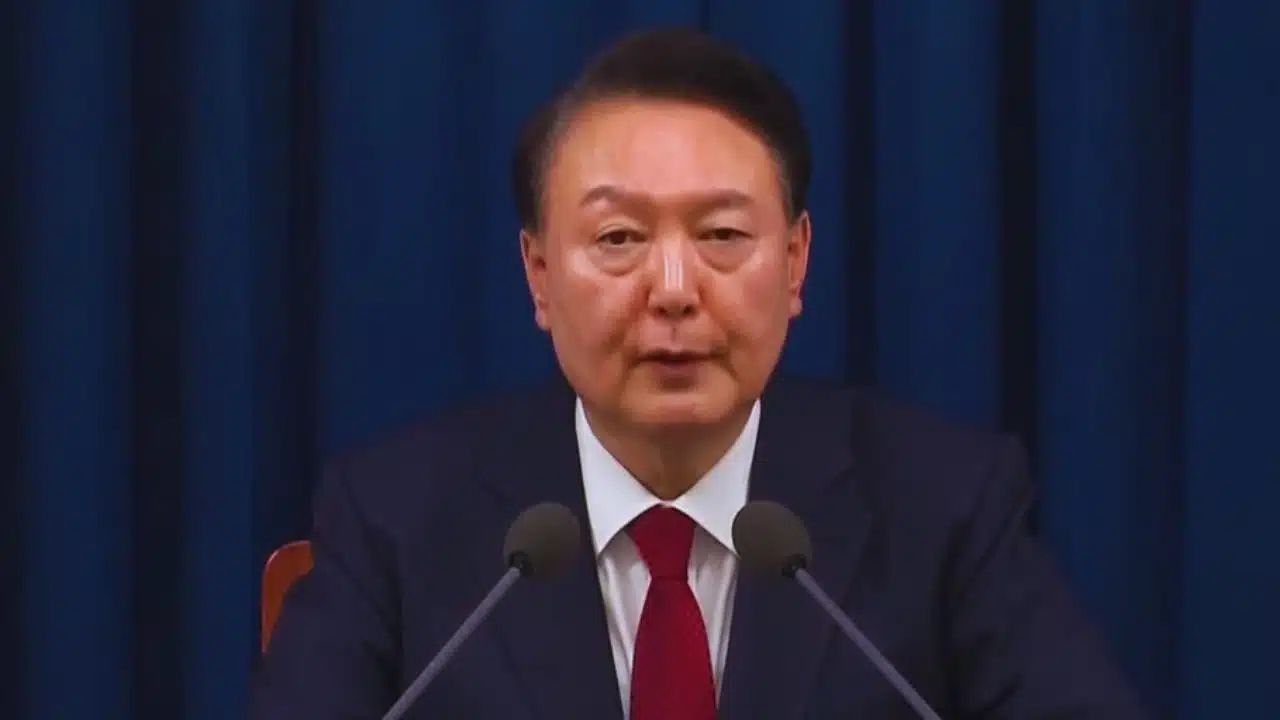In a historic and unprecedented move, the Seoul Western District Court has approved an arrest warrant for South Korean President Yoon Suk-yeol.
The warrant was issued in response to a request from the Joint Investigation Headquarters, which is probing allegations of insurrection and abuse of power related to Yoon’s brief imposition of martial law.
First Arrest Warrant for a Sitting South Korean President
This marks the first time in South Korea’s history that authorities have sought the arrest of a sitting president. The Joint Investigation Headquarters, comprising officials from the Corruption Investigation Office for High-ranking Officials (CIO), police, and the Ministry of Defence, confirmed the development in an official statement.
“The arrest warrant and search warrant for President Yoon Suk-yeol, requested by the Joint Investigation Headquarters, were issued this morning,” the agency said.
It remains unclear when authorities will attempt to take Yoon into custody. The Presidential security Service has stated that it will handle the warrant in accordance with established legal procedures, but previous attempts to execute search warrants at Yoon’s official residence and office were blocked by his security detail.
Legal Disputes and Political Backlash
President Yoon’s legal team has strongly opposed the arrest warrant, describing it as “illegal and invalid.” Yun Gap-geun, Yoon’s lawyer, argued that the CIO lacks the authority to investigate charges of insurrection against the president. He announced plans to seek an injunction from the Constitutional Court to nullify the warrant.
Kwon Sung-dong, the floor leader of Yoon’s conservative People’s Power Party, also criticised the court’s decision, calling it “inappropriate” and fueling political tensions.
If taken into custody, Yoon could face further legal hurdles. Authorities would have 48 hours to decide whether to apply for a warrant to detain him for additional questioning or release him. Yoon’s charges, including rebellion, could result in life imprisonment or even the death penalty, escalating South Korea’s political turmoil.
Martial Law Declaration Sparks Crisis
The charges stem from Yoon’s martial law decree on December 3, which he justified as necessary to counter “anti-state forces” and opposition obstructionism. The decree has plunged the country into its worst political crisis in decades.
Yoon, a former top prosecutor, has been suspended from his presidential duties since December 14 following a 204-85 impeachment vote by the National Assembly. Under South Korean law, the president is immune from prosecution for most crimes but not for charges of rebellion or treason.
A Deepening Leadership Void
The political crisis deepened further when the opposition-controlled legislature impeached acting President Han Duck-soo last week. Han faced impeachment for delaying the appointment of three Constitutional Court justices, leaving Deputy Prime Minister and Finance Minister Choi Sang-mok to assume presidential authority.
The Constitutional Court, which is deliberating on Yoon’s impeachment, has up to six months to decide whether to permanently remove him from office or restore his presidency. The vacancies on the court could slow this process, adding further uncertainty to the nation’s political future.
A Divided Nation Awaits
President Yoon has defended his martial law decree, claiming it was legal and necessary to protect the nation. However, critics argue that it undermined democratic processes and exacerbated political divisions.
As South Korea waits for the next steps, the court’s decision to issue the warrant underscores the severity of the situation. Whether Yoon faces arrest or continues to fight the charges, the events will have long-lasting repercussions on South Korea’s political and legal landscape.
The Information is Collected from CNN and BBC.




































